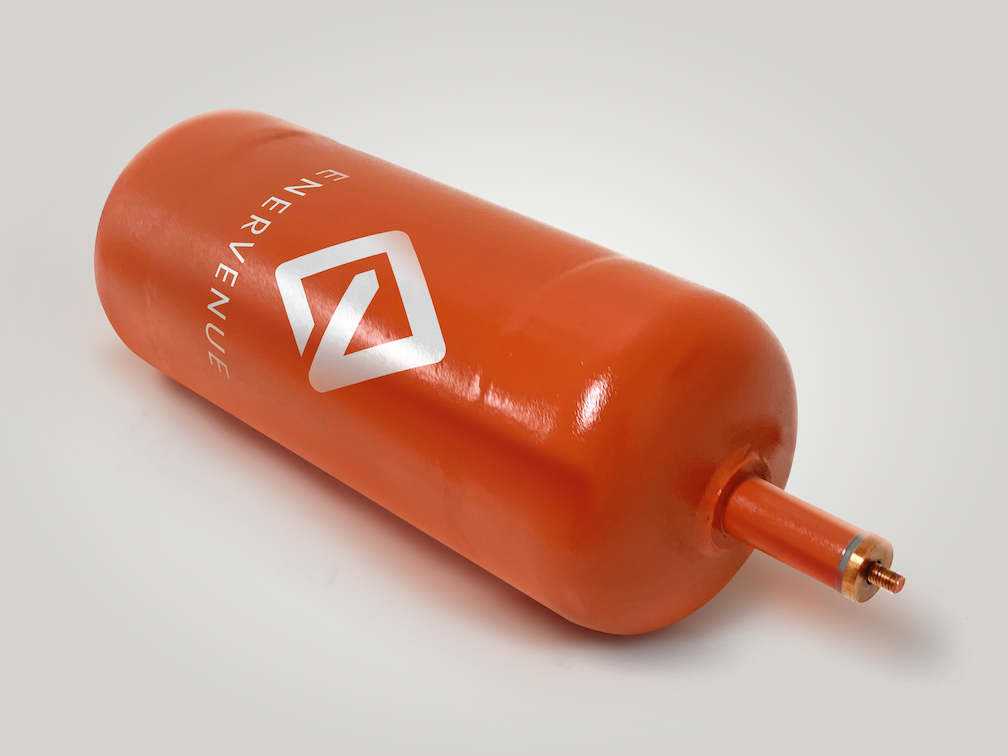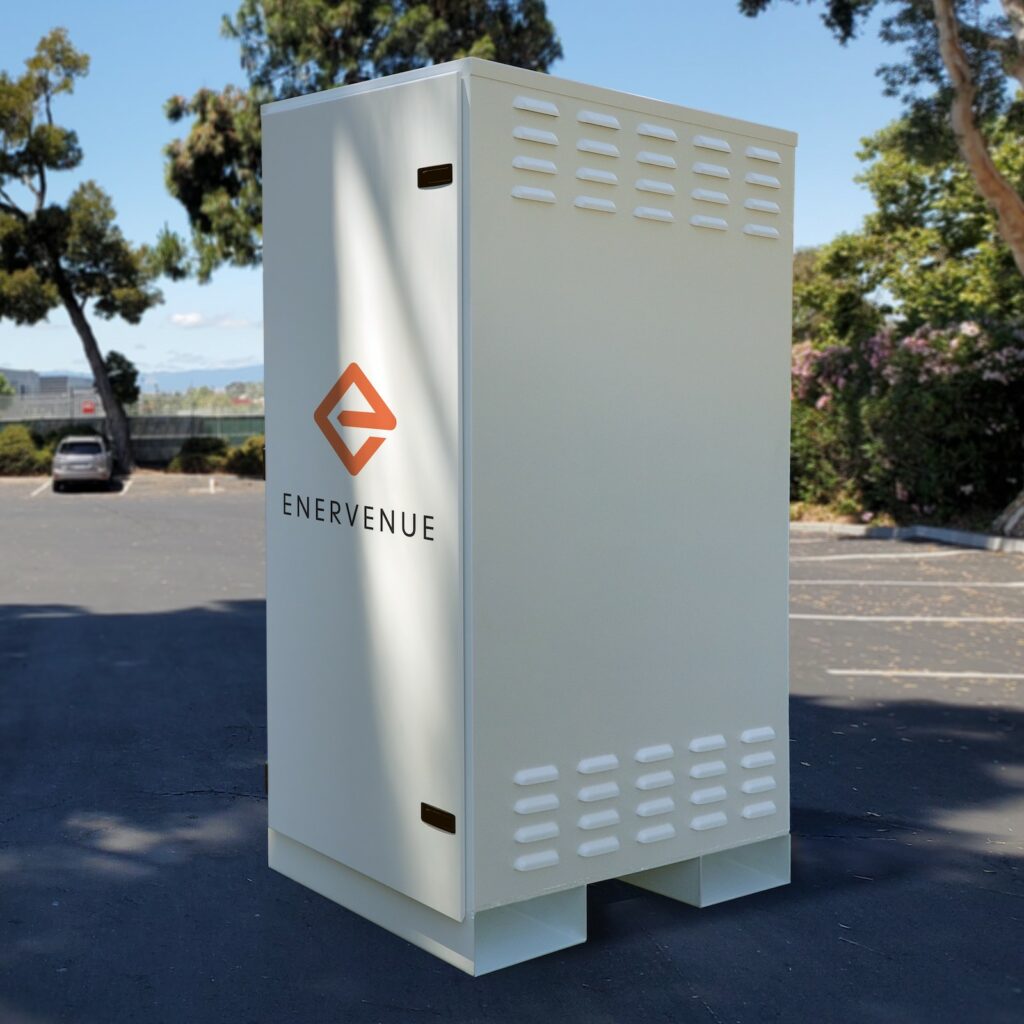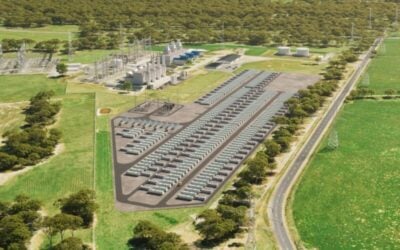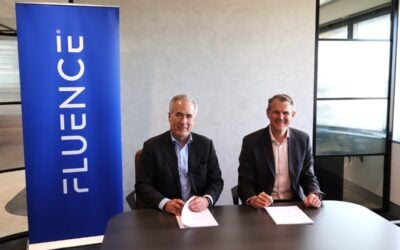
Nickel-hydrogen batteries have been used in space for several years, but a California company adapting the technology for storing energy here on earth has raised US$100 million in a Series A funding round.
EnerVenue, which only launched last year, claims to have been able to take advantage of recent technology breakthroughs that can dramatically lower the cost and increase availability of raw materials for the batteries, which are used on the International Space Station and the Hubble Space Telescope.
Enjoy 12 months of exclusive analysis
- Regular insight and analysis of the industry’s biggest developments
- In-depth interviews with the industry’s leading figures
- Annual digital subscription to the PV Tech Power journal
- Discounts on Solar Media’s portfolio of events, in-person and virtual
Participants in the investment round included Schlumberger New Energy, Saudi Aramco Energy Ventures and Stanford University, among others.
Having raised around US$12 million of funding prior to the Series A, EnerVenue said it now wants to use the new financing to build a US-based gigafactory, invest in R&D and expand its sales force.
As the company launched last year, CEO Jorg Heinemann told Energy-Storage.news that EnerVenue wants to disrupt the stationary energy storage industry with batteries that can store energy from 2 – 12 hours, have flexible charge and discharge rates and a “virtually unlimited number of cycles”.
Heinemann said that the battery, aimed at renewable energy and grid storage applications, could one day “become a go-to workhorse battery for most solar or wind-plus-storage applications”. First of all however, EnerVenue will focus on “use cases that place a premium on our differentiated capabilities,” like remote microgrids or large renewable energy storage projects in the desert.
This is because the battery can operate in harsh climates of extreme heat or cold, and should require minimal maintenance, he claimed. It is not yet upfront price competitive with lithium-ion, but Heinemann said last year that EnerVenue’s cost reduction roadmap could enable costs per kilowatt-hour of cycling at as little as US$0.01. Its materials and components are non-toxic and the batteries are designed to be recyclable.

Leader of the Series A round, Schlumberger New Energy, is a low-carbon and carbon-neutral focused division of multinational energy technology and services company Schlumberger. In addition to investing in EnerVenue, Schlumberger New Energy has agreed to deploy the nickel-hydrogen battery technology across “selected global markets” together with the battery tech provider.
This includes pursuing opportunities in Europe, the Middle East and Africa, as well as other regions. The two companies will partner on manufacturing in key territories, as well as on sales and distribution.
Schlumberger New Energy executive VP Ashok Belani said his company is “excited about the potential this technology holds for the energy transition” and that Schlumberger is “eager to leverage our technology expertise and global footprint in introducing EnerVenue’s technology to this important emerging market”.
The Schlumberger deal comes after EnerVenue announced its first distribution partnership in April, with Hong Kong-based utility Towngas. Towngas, which manages nearly 300 energy infrastructure projects across more than 20 Chinese provinces, is taking the batteries to China and Hong Kong.
Quick facts: EnerVenue’s nickel-hydrogen battery tech
| Temperature | Can operate in ambient temperatures from -40°C to 60°C |
| Lifespan | 30+ years |
| Cycle life | 30,000+ without degradation |
| Charge/discharge rates | From C/10+ to 5C |
| Duration | 2 to 12 hours |
| Efficiency | 80% to 90%, dependent on cycle rate |
“With the durability, flexibility, reliability and safety of its batteries, EnerVenue is delivering a unique and future-proof solution for grid-scale energy storage. We have proven the advantages that our next-generation nickel-hydrogen battery delivers and are excited to accelerate our journey forward with Series A backing and our agreement with Schlumberger,” CEO Jorg Heinemann said.
Saudi Aramco Energy Ventures is also an investor in Energy Vault, a Swiss-American startup which is currently commercialising a gravity-based mechanical energy storage technology. Energy-Storage.news reported in August that Energy Vault raised US$100 million in a recently closed Series C round and the company is now targeting a NYSE listing through merger with a special purpose acquisition company (SPAC).






